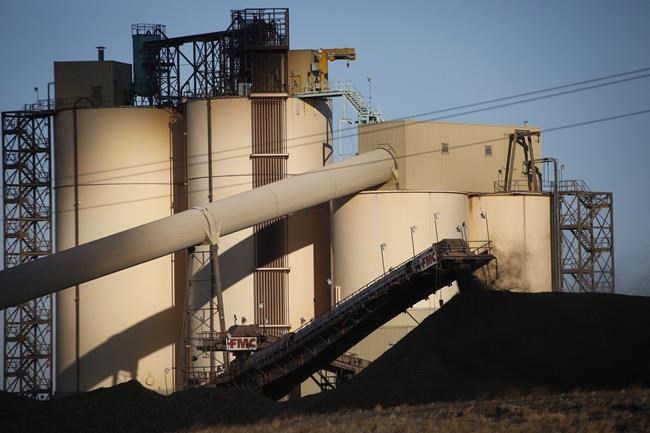EDMONTON — Alberta has struck a "fiercely independent" five-member committee to assess how people in the province feel about coal mining in the Rocky Mountains.
Energy Minister Sonya Savage said the committee is expected to report by mid-November. Coal exploration in the contested region is expected to continue during that time.
"This process will be extensive and will offer various opportunities for Albertans to get involved," Savage said Monday.
The committee will be led by Ron Wallace, an environmental scientist who has worked extensively in Canada's North and was a permanent member of the former National Energy Board. Other members include an area landowner, the director of a small-town chamber of commerce, a former environmental bureaucrat and a member of a local First Nation.
"This is an independent committee that will be fiercely independent," Wallace said. "(It will be) focused on the views of Albertans and making sure the government of Alberta has a fair understanding of what those views are."
Savage said the committee will determine for itself how it wants to proceed. Details are to follow.
She also promised a parallel government-to-government consultation with area First Nations. As well, the United Conservative government has opened an online survey that will be available until April 19.
Craig Snodgrass, the mayor of High River, Alta., whose council strongly opposes new coal mines in the Rockies, said he was happy with the makeup of the committee.
"'Fiercely independent' from the government is exactly what needs to happen," he said. "There's a balance there for the most part."
Snodgrass noted the committee contains no municipal government voices, despite the fact 27 municipal councils have expressed concern about the expansion of mining in the Rockies.
Katie Morrison of the Canadian Parks and Wilderness Society said independence will be a crucial issue for the panel.
"It remains to be seen how that panel actually works," she said.
She said the online survey seems to be nudging Albertans in the direction of how they want coal to be mined, rather than whether they want it mined at all.
"We don't need a new coal policy," she said. "We need a land use plan and a vision for this region."
Environment critic Marlin Schmidt with the Opposition New Democrats agreed.
"There are no questions in the survey about water quality and water quantity, and that raises questions about whether these topics will be in the scope of the consultation."
Brad Johnston, chief development officer for Cabin Ridge coal, one company that has been active in the region, said it supports the consultation process.
"We appreciate the questions being raised about development and think they are fair and appropriate," he said in an email. "We look forward to participating in the consultation and offering our views on responsible steel making coal development in Alberta."
Cabin Ridge has already been working with local people, he added.
Coal mining in the province has been intensely controversial since the UCP government announced last spring, without public consultation, that it had revoked a policy preventing surface coal mines since 1976. It was developed after years of public consultation by the Progressive Conservatives under Peter Lougheed.
Last month, Savage reinstated the policy and promised to listen to public concerns.
Schmidt pointed out that striking another advisory committee means companies with exploration leases bought after the original coal policy was revoked can proceed with more drilling and roadbuilding.
“If the UCP were sincere about their desire to consult with Albertans, they would have halted all coal exploration activities, or started this process last year when they rescinded the 1976 Lougheed Coal Policy to begin with.”
Maps compiled by Morrison's group using government information have shown the Alberta Energy Regulator approved impacts from coal exploration that exceed guidelines laid out in a land use plan that's supposed to be legally binding.
"There are companies out there drilling and roadbuilding and causing damage to that landscape before the future of that landscape has been decided."
This report by The Canadian Press was first published March 29, 2021.
— Follow Bob Weber on Twtter at @row1960
Bob Weber, The Canadian Press
Note to readers: This is a corrected story. A previous version said a committee member was a small-town mayor.




